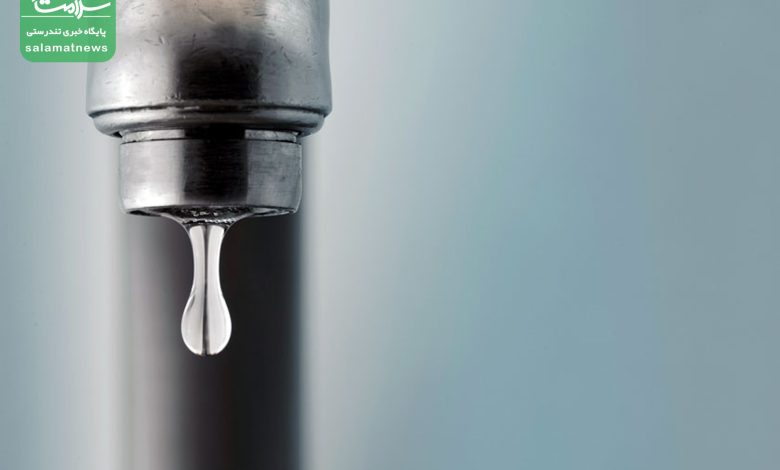Nighttime Water Pressure Cuts in Tehran Could Trigger Microbial Contamination

A public health policy expert has cautioned that Tehran’s recent nighttime water pressure reductions—implemented to manage consumption during severe water shortages—may inadvertently increase the risk of microbial contamination and waterborne diseases.
Tehran’s recent decision to reduce water pressure during nighttime hours has raised serious public health concerns. According to Salamat News, Dr. Hamid Bahlouli, a professor of public policy and health, issued a formal warning to the Minister of Health, outlining the potential dangers associated with this measure.
Dr. Bahlouli emphasized that Tehran’s aging water infrastructure—marked by approximately 20% underground leakage and widespread pipe corrosion—makes the system highly vulnerable to reduced pressure. He explained that sudden pressure drops can lead to back-siphonage, a phenomenon where contaminants such as bacteria, soil particles, heavy metals, and other pathogens are sucked into drinking water through cracks and leaks in the network.
He also warned that fluctuating pressure during nightly shut-offs and restarts may create hydraulic shocks, further damaging weakened pipes and increasing pathways for contamination.
Moreover, reduced pressure can compromise chlorine efficacy, encourage the growth of resistant biofilms inside pipes, and elevate the risk of gastrointestinal infections and other waterborne illnesses.
Citing international standards, Dr. Bahlouli stressed:
“Free residual chlorine must remain between 0.3 and 0.5 mg/L, and may be increased to 1 mg/L under emergency conditions. Anything lower severely weakens the network’s microbiological safety.”
His key recommendations include:
- Smart monitoring of network pressure, ensuring it never drops below 1 bar
- Continuous chlorine level assessment, particularly in remote zones
- Public guidance on flushing stagnant water in the mornings
- Formation of a joint task force among the Ministry of Health, Water and Wastewater Company, and Pasteur Institute
- Precise adjustment of chlorine dosing to avoid harmful by-products
Dr. Bahlouli concluded his letter by stating:
“Unplanned or poorly managed pressure reductions in a deteriorated network can push the country into a public health crisis amid ongoing water shortages. Preventive management and continuous oversight are essential.”
These concerns come as several districts in Tehran have experienced noticeable drops in water pressure during recent weeks, intensifying worries about the integrity and safety of the city’s drinking water supply.




